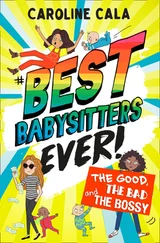Ed Lacy - The Best That Ever Did It
Здесь есть возможность читать онлайн «Ed Lacy - The Best That Ever Did It» весь текст электронной книги совершенно бесплатно (целиком полную версию без сокращений). В некоторых случаях можно слушать аудио, скачать через торрент в формате fb2 и присутствует краткое содержание. Жанр: Старинная литература, на русском языке. Описание произведения, (предисловие) а так же отзывы посетителей доступны на портале библиотеки ЛибКат.
- Название:The Best That Ever Did It
- Автор:
- Жанр:
- Год:неизвестен
- ISBN:нет данных
- Рейтинг книги:4 / 5. Голосов: 1
-
Избранное:Добавить в избранное
- Отзывы:
-
Ваша оценка:
- 80
- 1
- 2
- 3
- 4
- 5
The Best That Ever Did It: краткое содержание, описание и аннотация
Предлагаем к чтению аннотацию, описание, краткое содержание или предисловие (зависит от того, что написал сам автор книги «The Best That Ever Did It»). Если вы не нашли необходимую информацию о книге — напишите в комментариях, мы постараемся отыскать её.
The Best That Ever Did It — читать онлайн бесплатно полную книгу (весь текст) целиком
Ниже представлен текст книги, разбитый по страницам. Система сохранения места последней прочитанной страницы, позволяет с удобством читать онлайн бесплатно книгу «The Best That Ever Did It», без необходимости каждый раз заново искать на чём Вы остановились. Поставьте закладку, и сможете в любой момент перейти на страницу, на которой закончили чтение.
Интервал:
Закладка:
The Best That Ever Did It
Ed Lacy
This page formatted 2004 Blackmask Online.
http://www.blackmask.com
PREFACECHAPTER 1CHAPTER 2CHAPTER 3CHAPTER 4CHAPTER 5CHAPTER 6CHAPTER 7
PREFACE
IT WAS just another ordinary and dreary bar on Amsterdam Avenue in that part of New York City called Washington Heights. Why it was named The Grand Cafe nobody seems to know. It had neither gaudy neon lights nor air conditioning, and the small screen TV perched in one corner was the same set it had had when TV was a novelty.
It was like an old-fashioned saloon, although it only dated back to 1923. (During Prohibition it was called the Grand Cafe Ice Cream Parlour and openly sold needle beer and very little ice cream.) It was called a bar, rarely a cafe, a joint, a gin-mill, a dive, and a dump. Strangely enough nobody ever called the place what it really was... home.
Certainly not the best of homes, but after a long day at a dull job a man could skip returning to his lonely dingy room and drop into the Grand—which became his living room—for a beer and see the regulars nod at him, hear Jimmy-the bartender-mutter “Hello...” which may have been the only friendly word the man heard all day.
A man could escape—temporarily—the bitterness of tenement poverty that drained his wife's youth and made his children merely pests... by dropping into the bar, which became his den, and watching the ball game or the fights on TV, join in the brassy and meaningless small talk.
In the afternoons a few housewives would come in for a fast beer, to gossip and find out what number was leading. Or just to get a snack, for any time during the day or night you could get a thick hamburger, and it was assumed you wanted a heavy slice of onion and a pickle on it.
In short: in the Grand Cafe a human could still find a small measure of warmth and dignity in the company of other humans.
On this particular evening, when the men were murdered, the bar was crowded and full of cheer because Lady Luck had gently tickled one of the regulars. His name was Franklin (“But call me Frank") Andersun and he was a thin young man in his late twenties with the kind of face women didn't look at twice, or even once. As befitting the night's celebrity, Andersun was standing at the center of the bar and the others were buying him beers—and he had been trying to make the men's room for the last half hour.
“Tell me, Frankie boy,” a newcomer said, shaking his hand and anchoring him to the bar, “how did you work it? I'm reading the paper in the subway and I see your name. Gave me a bang. They really give you a thousand bucks for writing them few words? What was they again?”
“'I eat Nutsy Pudding because I know what I like and I like Nutsy,'“ an elderly man repeated, shaking his large head as he talked. “What a way to make a thousand!”
Jimmy the bartender was short and fat, with liver spots on his hands and freckles on his wrinkled face, and all his skin had a preserved, wax-like look to it. Pouring a beer he said, “And that's the trouble with the world, everybody thinks something is easy, after they see it done.”
“It was easy, it was the truth,” Andersun said. “I'm a fussy eater but I go for that pudding. Eat it like a pig.”
“And you're heading for Europe?” the newcomer asked.
“Yeah. But I got to go to the John now or my kidneys will float out of my mouth,” Frank said, finally breaking away from the men around him.
“Jimmy, what's he want to go to Europe for?” the newcomer asked the barkeep.
“He just wants to, I guess.”
At the end of the bar nearest the door a place was reserved by custom for Danny Macci, whose tremendous shoulders made him look short, although he was well over six feet tall. He had bushy strong hair that was all gray, an ugly face, and a large square chin. Danny had been a professional wrestler back in a TV-less era when wrestling wasn't such a busy profession, and along with a pair of ears thickened like stuffed prunes, Macci had also contracted an eye disease that left him blind. He lived on a monthly relief check and had little trouble cadging beers from the regulars, and even from Jimmy. At the drop of a beer cap Danny would lecture about “Them lousy clowns they call wrestlers today,” or show off his muscles. Now he put down his glass of beer, asked, “Why shouldn't the lad go to Europe? Be nice to hear strange sights and people. Wish I was going.”
“Had your eyes, you'd be wrestling all over the world today,” Jimmy said.
“That's the truth. I'm near sixty but I'm still a wrestler, not an acrobat. Still got my strength.” He held up a thick, gnarled hand. “Anybody want to see me crush a beer can?”
“Now, Danny, ain't necessary to do that,” Jimmy said. “You got two beers coming up.”
Another regular said, “If I was a young man like Frank, I'd open a store with the money.”
“Does surprise me,” Jimmy said, moving down the bar with three beers (except for strangers, beer was the week-night drink, with a whiskey or two thrown in on Saturday nights), “because Frank used to talk so much about the money to be made if a fellow got a start.”
“What's a grand for a business?” somebody chimed in. “Start on a shoestring and you end up hanging yourself with it.”
Andersun returned to the bar and thanked another newcomer who had a beer ready for him. The newcomer asked, “Wasn't you in Europe when you were a pilot?”
“I was a waist gunner, not a pilot,” Frank told him. “We got to England just when the war was over in Germany and we flew our B-17's back to the States, started training for the Pacific. Never got there either. In flying, you're always looking down at things. Now I want to see what's going on down there.”
“Quitting your job?”
Frank nodded. “Sure. I'll be a stock clerk someplace else after I see what makes Paris tick.” He finished his beer. “Near eleven. Guess I'll float on home. See you, Jimmy.”
“When you leaving?”
“Not for several weeks. Haven't seen about my passport or boat tickets yet. They only told me I won last night.”
“And the reporters came right up to see you,” Danny added.
“Not a reporter, the company's public-relations man phoned. He planted the story. See you tomorrow.”
As Andersun left, the regular who wanted to open a business said, “Soldier is always a soldier, hey, Jimmy? Remember the way we spent our bonus money back in... When was that, '29, '32, '34, or when?”
“I forget the year but it was the only time I was loaded,” Jimmy said. “Tell you, soldiers in the second war are different, more serious, like Frank. They were in longer, saw more action.”
“But they never faced no gas like we did. I remember the time...”
“Soldiers, soldiers, big bullying heroes!” Danny cut in loudly. In 1917 he only had partial sight and was rejected.
“That's no way to talk.”
Danny turned to face the man. “I talk any damn way I want —unless you think you can stop me!”
Even when he was staggering drunk no one ever tangled with Danny, and it wasn't because he was blind—those thick arms could squeeze a man to death.
“Danny, take it slow,” Jimmy said softly. “And finish your beer.”
The bar quieted down. A woman put a nickel in the ancient juke box and there was the usual small talk. Outside, two brief, sharp clear sounds were made and Danny looked up from his beer, said, “Hear that? They were shots.”
“Aw Danny, slow down. A car backfiring,” Jimmy said.
“That's right, we heard enough shots in the woods at Verdun to recognize guns, didn't we, Jimmy? I'll never forget...”
A young man came rushing into the bar, full of breathless self-importance at the news he carried. He yelled, “Two guys was shot dead outside! One of them is Frank Andersun!”
Читать дальшеИнтервал:
Закладка:
Похожие книги на «The Best That Ever Did It»
Представляем Вашему вниманию похожие книги на «The Best That Ever Did It» списком для выбора. Мы отобрали схожую по названию и смыслу литературу в надежде предоставить читателям больше вариантов отыскать новые, интересные, ещё непрочитанные произведения.
Обсуждение, отзывы о книге «The Best That Ever Did It» и просто собственные мнения читателей. Оставьте ваши комментарии, напишите, что Вы думаете о произведении, его смысле или главных героях. Укажите что конкретно понравилось, а что нет, и почему Вы так считаете.












